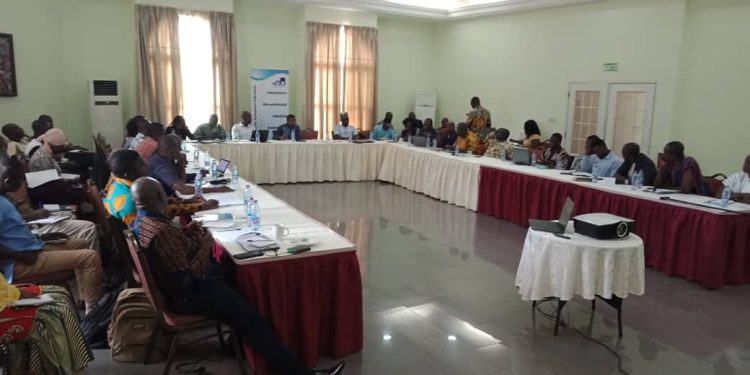The media has been challenged to educate citizens to demand accountability from state authorities.
There have been concerns about the inability of most Ghanaians to question state authorities and demand accountability from them although citizens are empowered by the constitution to do so.
This came to light at a public forum organized by the Center for Democratic Development (CDD-Ghana) in Tamale in the Northern Region to discuss and share lessons learnt from its ‘I AM AWARE’ (IAA) initiative which has been running since 2011.
The ‘I AM AWARE’ campaign which was supported by William and Flora Hewlett Foundation in the USA is aimed at empowering citizens and to improve their awareness and engagement with duty bearers by providing free, up-to date, user friendly and accessible information on the state of goods and services to enhance citizens demand for the supply of such services.
The project which is being implemented in 20 districts also seeks to improve the provision and accessibility to quality public goods and services as well as human development outcomes through an informed and empowered citizenry action and governmental responsiveness.
In an interview with Citi News on the sideline of the public dissemination of IAA evaluation findings, the Programme Director and Acting CEO of STAR-Ghana Foundation, Ibrahim-Tanko Amidu, expressed concern about the politicization of developmental issues in the country which deter ordinary citizens to approach duty bearers to be accountable.
This he calls on stakeholders to surround discussions around key issues and how the citizenry is affected in a particular district adding that, “the district assemblies should see themselves as representatives of all the people and not representatives of the party in power.
The dissemination of the IAA report revealed that, data generated is not effectively used by the media and other civil society organization, thus limiting the level of quality information churned out to attract the needed discussions by citizens.
The report however revealed that, the project has chalked some success at the district level as district assemblies are now able to measure their performance through the district league table.
This has also generated conversation among policymakers on how to use the league table to improve performance thereby pressurizing central government for more support.
A team leader at CDD, Mohammed Awal Swallah said the evaluation is necessary as this will inform the direction of the IAA project as it begins its third phase.
“It is important that we get a feedback about how effective what we are putting in place is doing or not working so we can learn some lessons from the evaluation outcome to inform our discussions going forward.”
The dissemination forum brought together civil society organizations, the media and other relevant stakeholders to discuss lessons learnt and some challenges and the way forward.





